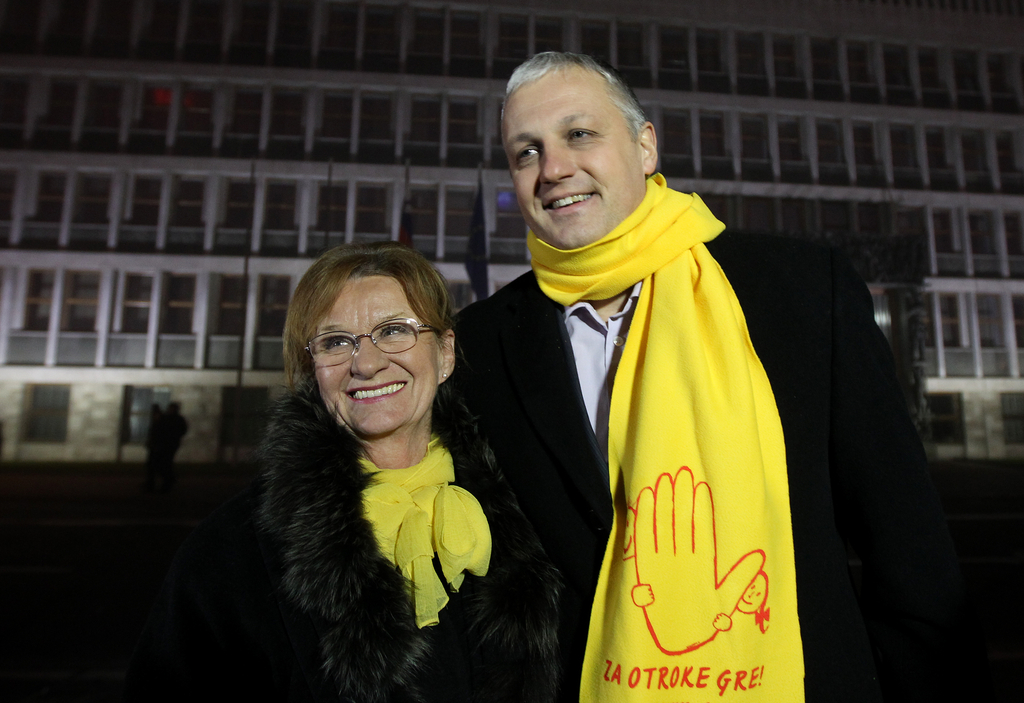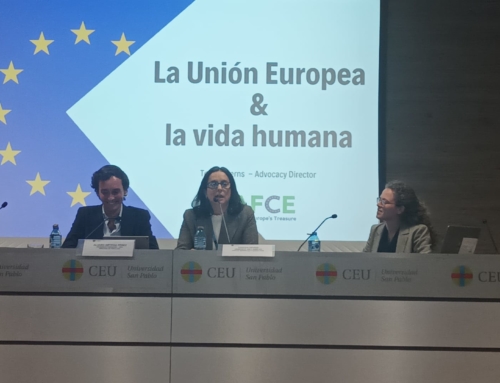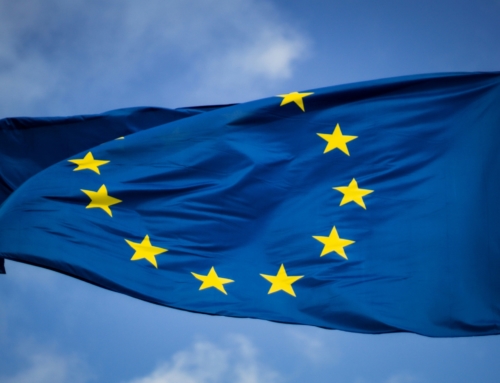Metka Zevnik and Ales Primc,
Co-leaders of the Coalition “It’s about the children”
On 20 December 2015 Slovenians had the possibility to express their opinion on marriage, thanks to the direct involvement of many citizens and of the pro-family Coalition ‘It’s about the Children‘. On 3 March last year the Slovenian parliament approved a bill which changed the nature of the civil marriage, which – according to this bill – was not anymore reserved to the union beetwen a woman and a man. That bill was repealed thanks to the vote of the 63,54 % of participants in a popular referendum.
The referendum took place after a long period of uncertainty due the Parliament’s refusal to accept the popular demand to vote on the bill which defines marriage as a “union between two consenting adults“. Finally, the Constitutional Court allowed the popular initiative. One month after the referendum, FAFCE interviewed Father Tadej Strehovec about the future challenges for the family in Slovenia and in Europe.
Franciscan, bioethician and moral theologian, Father Tadej Strehovec is the Director of the Institute for Family and the Culture of Life in Slovenia. He teaches family ethics and bioethics at the University of Ljubljana. Since 2009 he has been involved in the pro-family movement in Slovenia and promoting pro-family theology in Church and media.
1. The Coalition “It’s about the Children”, which promoted the Referendum, declared after the victory that they hoped that “no one will see this result as a defeat.” In what sense can these results be considered as a positive victory for all Slovenians?
I believe that the second rejection of the proposal to legalize the adoption of children by same-sex couples in last three years is a sign of deep awareness of the importance of a mother and a father for the development and identity of every child. Through the referendum campaign, the Slovenians deepened their knowledge of the importance of family life, education and preparation of children for a family life. This is of huge importance due to the extreme low of marriage rate and consequently low demography in Slovenia. This last referendum was also an excellent sign to all Slovenians and to the whole of Europe that it is possible to stop the antifamily agenda if people of good will from different religious and non-religious backgrounds collaborate and join their efforts.
2. A new European Citizens’ Initiative has recently started, asking the EU to respect subsidiarity on family law. In this context, do you think that this result could be seen as a good sign for all of Europe?
The importance of this initiative lies in raising awareness on the importance of family life, motherhood and fatherhood for children, nations, cultures and European society as a whole. New scientific research proves that the family structure matters. With regard to health, education and social behaviour, children from intact families achieve better results and outcome. From the point of view of religion, it is interesting that faith is better transmitted from one generation to another in an environment where children are living with their biological mother, father, and grandparents as well. On the other hand, it is true that this kind of campaign will deepen the awareness of Europeans for deprived children living without family life, often in violent and poor conditions. We have to help them and to promote policies that will train young people towards establishing a family and to overcome various difficulties, which are present in the daily life of every family. As you know – in real life there are no ideal families! There are only families with joy and courage to forgive and overcome different kinds of obstacles. Personally I hope that the European institutions will respect the subsidiarity on family law and that they will not make political and financial pressure on governments to redefine the basic value of family in their legislation and in school programs. The EU and governments have a duty to respect the right of parents to educate their children according to their beliefs and values.
3. What do you think are the challenges we are called to face in the future? What are the signs of hope?
All family organisations in Europe are facing many challenges. One of them is to develop a new language which will be audible to all Europeans. It has been proved true many times that we may have the best arguments but if we do not develop the best slogans and stories – people cannot understand what we would like to say. On the other hand, it is important to develop excellent answers to hot button topics in Europe like same-sex marriage, adoption, surrogate motherhood, euthanasia etc. Often it is difficult for people to promote their values because of the lack of proper language. I believe that we have to develop a special pro-family language course that will enable us to defend and to promote family values in Brussels and in every country in Europe and in the World.
There are many signs of hope in today’s Europe. More and more Europeans do not believe in divorce and in the ideas which relativize the meaning of fatherhood and motherhood for children. Especially the younger generation – many times having experienced personally a broken family – publicly promote the value of marriage, family and human life. And this is a good sign. I am always amazed because there are many young people who have the courage to go into the media, politics or on the road to publicly announce what they believe in. And they believe that there is no future without family and children and without good relations between husbands and wives. It is important to educate and organize our pro-family generation to be heard more at the national and European level.







